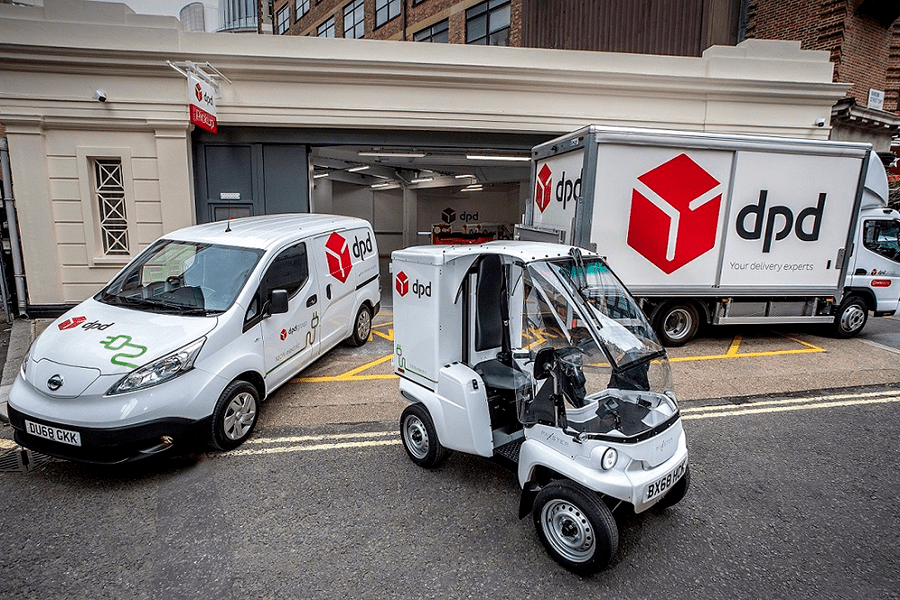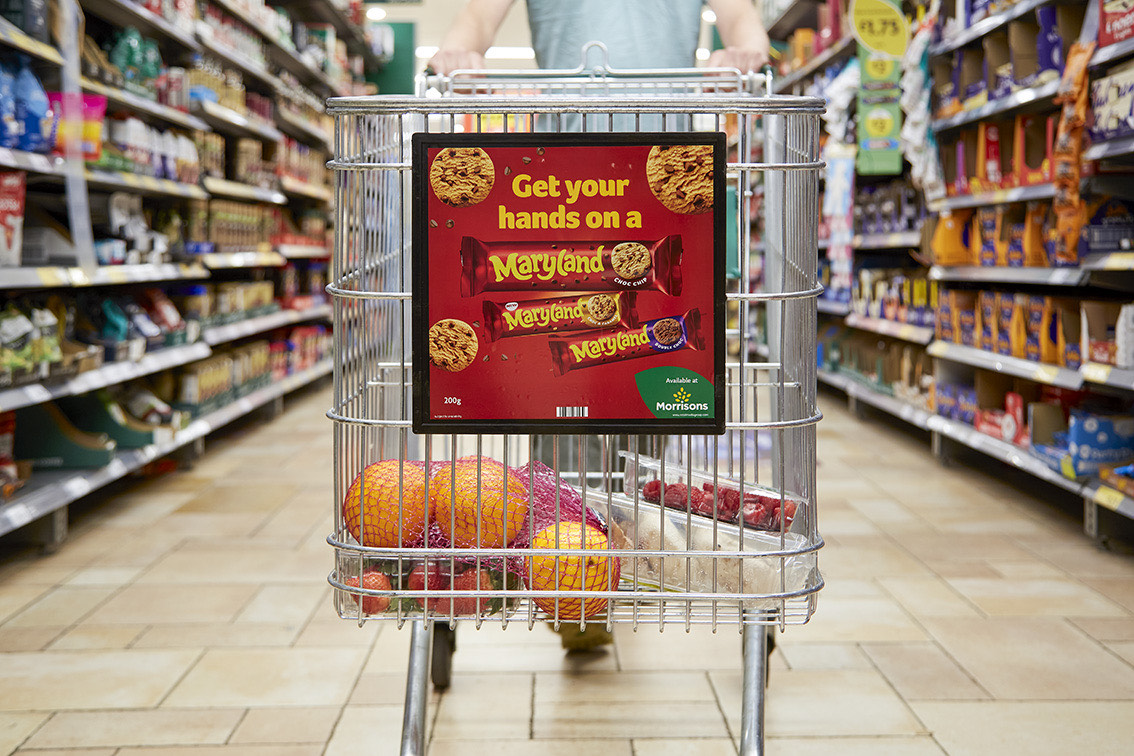Emma Herrod investigates how ecommerce is following voluntary and regulatory targets for environmental change.
The UK government has voted, along with its EU counterparts, to introduce strict rules to reduce vehicle emissions from 2025. These could see up to a 40% reduction in CO2 levels from new cars and vans by 2030 since the UK has said that it plans to introduce targets regardless of Brexit.
An Ulta Low Emission Zone (ULEZ) will operate in central London from 8 April 2019 with all vehicles over a certain CO2 level being charged for driving in the area. The scheme will be expanded London-wide for vehicles over 3.5 tonnes by 26 October 2020 and for all vehicles driving in an area within the north and south circular roads from the following October. Vans manufactured after 2006 should already be under the limit for the charge but already more electric vehicles are being seen on the UK’s roads as adoption spreads amongst consumers and delivery companies alike.
From a final mile standpoint, ecommerce has been able to declare since 2009 that it is a greener alternative to what was a traditional car journey to the shops. A report by Professor Alan McKinnon of Edinburgh’s Herriot Watt University concluded that a customer shopping by car would have to buy 24 non-food items to reduce their equivalent emissions to those of a home delivery.
“A dedicated car trip for a specific item generated 4,274 grammes of CO2 per kilometre, but a successful first-time delivery created just 181 grammes of CO2 per km per parcel,” explains David Jinks, Head of Consumer Research, ParcelHero.
However, CO2 is not the only noxious substance to be emitted by vehicles. ParcelHero’s recent study ‘How will home deliveries retain the green crown?’ tackles the growing concerns about nitrogen oxide and particulates emissions and what online retailers are doing to keep their crown as the greenest form of retail.
“NOx impacts on respiratory conditions, high levels causing inflammation of the airways. As long ago as 2012 campaigners were arguing that NOx should be considered as being just as important as CO2 emissions. Then came ‘Dieselgate’, the revelation that some VW Group vehicles allegedly emit up to 40 times more NOx in real-world driving than in laboratory tests, which bought the issue to the forefront of public attention,” says Jinks.
He adds: “The latest Euro 6 diesel vans have now cut nitrogen oxide by 55% from 180mg/km to just 80mg/km. (In contrast, the NOx limit for petrol engines has not been altered from the previous Euro 5 standards). And they also cut down emissions of sulphur oxide, carbon monoxide, hydrocarbon and diesel particulate. However, many of the best-known names in deliveries are actually ahead of the curve in planning to ditch the diesel in urban areas: Royal Mail is introducing a significant fleet of electric vehicles (EVs) from Peugeot and Banbury-based Arrival; and UPS has also ordered 35 of the ultra-lightweight Arrival EVs. It has just fitted its central London depot with extensive new recharging facilities ready for a significant boost to its electric fleet.”
The study reveals Hermes is already running a fleet of 32 EVs in Central London and is considering a large scale roll out of such vehicles in cities throughout the UK; while DHL is not only building its own electric vans but is also now emerging as EV supplier for other companies. Its StreetScooter range is expanding from producing mainly for DHL’s own fleet to now selling EVs to other logistics companies.
Within London, carrier Gnewt operates more than 100 EVs delivering three million parcels last year, and at the end of 2018, DPD opened the first of seven depots which will operate EVs to feed parcels into the depot and for the final mile deliveries to customers. DPD Westminster will have capacity to deliver 2,000 parcels while achieving a reduction of 45 tonnes of CO2 per annum.
The carrier company will operate three different types of EV at the depot: Two Mitsubishi Fuso eCanter 7.5 tonne vehicles will feed parcels into the depot each day, while the final mile deliveries will be made by 10 Nissan eNV200 vans which are capable of making 120 stops a day, and 8 Paxster micro-vehicles which are able to make 60 stops on one charge each day.
More vehicles are on order and a further depot is planned for Shoreditch.
“People are more aware than ever of the harmful pollution older vehicles, especially heavy goods and delivery vehicles, can emit. The Mayor’s ambition is for all new cars and vans to be zero-emission from 2030 and I hope this is the first of many all-electric delivery depots in London,” says Shirley Rodrigues, London’s Deputy Mayor for Environment and Energy.
PACKAGING
Delivery is just one part of the supply chain though. Supermarkets and food manufacturers have been working to reduce the impact of packaging on the environment, finding ways to use less or more compostable materials.
The use of plastic bottles and straws hit home with consumers following David Attenborough’s messaging on the ‘Blue Planet II’ TV documentary and the Government has since introduced a blueprint for businesses and manufacturers to pay the full cost of recycling or disposing of packaging. This could see the re-introduction of consumers paying a deposit on bottles to be returned to shops as well as manufacturers being legally responsible for the disposal of items that are harder or costly to recycle such as cars, electrical goods and batteries. The legislations may be extended to textiles, fishing gear, vehicle tyres, mattresses, furniture and carpets too.
Speaking at the launch of this Resources and Waste Strategy, Environment Secretary Michael Gove said: “Our strategy sets out how we will go further and faster, to reduce, reuse and recycle.
Together we can move away from being a ‘throw-away’ society, to one that looks at waste as a valuable resource. We will cut our reliance on single-use plastics, end confusion over household recycling, tackle the problem of packaging by making polluters pay and end the economic, environmental and moral scandal that is food waste.”
To help drive up recycling levels further, the government will introduce a list of recyclable material for collection across the country, subject to consultation. This will be funded by businesses through a policy of Extended Producer Responsibility (EPR) which will see companies pay higher fees if their products are harder to reuse, repair or recycle.
EPR will also move waste up the hierarchy, stimulating secondary markets while also encouraging more sustainable design decisions in the early stages of a product’s life. Something which toiletries and cosmetics brand Lush is already doing. In December, it introduced a range of lipstick refills that can be put into an empty lipstick container from any brand.
The Resources and Waste Strategy is the Government’s next step following the announcement in the Autumn Budget of a consultation on a plastic packaging tax which does not meet a minimum threshold of at least 30% recycled content from April 2022. The Government is set to publish an Environment Bill later this year. One of the principles included in the draft bill which was published in December 2018 is the principle that the polluter pays.
DO CONSUMERS CARE?
Consumers are increasingly thinking about environmental factors when they shop for food and grocery items but being green has less impact when they are shopping for clothes.
More than 70% of consumers say that they consider the environmental impacts of their choice of food and grocery retailers and products, according to a survey by GlobalData. This falls to 64.2% for clothing & footwear but demonstrates that non-food retailers must also make changes to minimise their impact on the environment while clearly communicating their commitment to shoppers.
Since the BBC’s Blue Planet II highlighted the environmental impact of plastic, supermarket Lidl has said that it will stop using unrecyclable black plastic packing and Morrisons has introduced paper bags for loose fruit and vegetables.
As Emily Salter, Retail Analyst, GlobalData, points out: “Although the retail industry’s impact on the environment goes far beyond the use of plastic, this data indicates that the recent heightened awareness is likely to have contributed to the high level of consumers considering environmental impacts.”
That fewer numbers of consumers consider the environment when buying clothing & footwear may be down to a lack of awareness and scarcity of more sustainable, yet affordable, options.
Consumers are also more distanced from the sourcing, processing and packaging of non-food products, since, with the exception of online orders, most products aren’t wrapped in plastic.
A documentary by Stacey Dooley and the recent Parliamentary Review may go some way to raising the environmental impact of the fashion industry in consumers’ minds. “A raft of highly disturbing facts emerged – not least that the global fashion industry produced 1.2 billion tonnes of CO2 equivalent in 2015, more emissions than international flights and shipping combined and the growing evidence that marine habitats are being contaminate by synthetic fibres released when clothes are washed,” says Craig Summers, UK Managing Director, Manhattan Associates.
Some 80 companies and supporters representing more than half of UK retail sales by volume have signed up to Sustainable Clothing Action Plan (SCAP) 2020 in the past 5 years. The voluntary plan commits them to reducing water, carbon and waste when items of clothing are manufactured and at the end of the product’s life by reducing the amount going to landfill.
Brands signed up to the WRAP-administered Plan include Arcadia, Asos, F&F, Next, Primark, Sainsbury’s, Ted Baker and Whistles.
Changes in the composition of fibres used to make clothes and the use of more sustainably-produced fibres have had a big impact on the footprint of the UK’s clothing industry over the past five years, according to WRAP. Selecting more sustainably-produced fibres from enterprises like the Better Cotton Initiative is significantly reducing the volume of water used in clothing sold by SCAP 2020 members.
Water demand is a huge factor in the production of clothing from crop irrigation, manufacturing fibres through to dyeing. WRAP found that the total reduction in water-use during the lifetime of garments sold by SCAP 2020 members has saved the equivalent of 42,000 baths of water per tonne of clothing sold. Enough water for a family of four to each take a bath every day for twenty-nine years.
“Compared with the wider sector they [SCAP 2020 signatories] continue to set the bar high for improving sustainable practices. And it’s important that they do because while clothing might only be the eighth largest sector in terms of household spend, it has the fourth largest environmental impact behind housing, transport and food.
As the Environmental Audit Committee into fast fashion has shown, there’s a lot more work to do on clothing and I believe that initiatives like SCAP 2020 have an important role to play. The public is getting increasingly concerned about the impact of clothing on the environment, just like it has in relation to plastics,” says Peter Maddox, Director, WRAP.
His thoughts are born our by a survey conducted for the Institute of Business Ethics (IBE) by Ipsos MORI. It found that the public’s general opinion about ethical business behaviour has reached the highest level since the survey was first undertaken in 2003.
Nearly two thirds (62%) of the British public now say they consider that business behaves ethically, compared with under half in 2003 (47%).
The top two issues that consumers think businesses need to address – tax avoidance (33%) and executive pay (24%) – remain unchanged. Environmental responsibility ranked joint second (24%) as extreme weather and the Blue Planet Effect brought it back into the minds of the British public after falling sharply since 2008.
“Business also appears to be becoming more proactive in recognising issues of concern for the public, and going further than the law, for example, in addressing environmental concerns.
However, the fact that corporate tax avoidance and executive pay remain the top public concerns – albeit at a reduced percentage – is an example where business is still not doing enough to address ethical issues,” says Philippa Foster Back CBE, Director, IBE.
With environmental concerns over vehicle emissions, recycling, packaging and the products themselves all taking steps forward in 2018 is it time for every retailer to look at the circular economy and scrutinise what they sell before they are regulated to do so?






